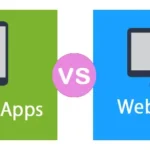In an age when software permeates nearly every facet of business, from logistics and sales to customer experience and data analytics, companies large and small are grappling with a deceptively simple question: should we build our own software, or buy what’s already out there?
The stakes are high. A well-suited software solution can streamline operations, increase efficiency, and become the backbone of a thriving enterprise. The wrong fit, however, can slow growth, frustrate employees, and even put sensitive data at risk. At Poterby Tech, we’ve guided startups, mid-sized companies, and enterprises alike through this crossroad. Here, we break down the nuances between custom software and off-the-shelf solutions—with clarity, detail, and a touch of journalistic scrutiny.
The Case for Custom Software
Imagine commissioning a tailor to create a suit exclusively for you. Every stitch, every seam is designed with your form and function in mind. That’s custom software: a solution built from the ground up to address the specific needs of your business.
Tailored Fit: With custom software, businesses enjoy the luxury of aligning their digital tools exactly to their processes. No need to adjust your workflow to match a tool’s limitations.
Scalability and Integration: Growth often reveals the limits of generic software. Custom solutions evolve with you. They integrate cleanly with other tools, adapt to shifting market demands, and can be expanded over time without dependency on third-party providers.
Intellectual Property and Ownership: You own the software. The codebase, the data handling, the user interface—all yours. This means full control over data security, future developments, and cost management.
Yet custom software isn’t without challenges. Costs can be steep at the start, and building from scratch takes time. Moreover, maintenance is ongoing—you’re not just buying a product, you’re investing in a living, evolving system.
The Allure of Off-the-Shelf Solutions
Walk into any department store, and you’ll find rows of ready-made clothing. It may not fit perfectly, but it’s available, affordable, and often stylish enough. Off-the-shelf software operates the same way: mass-produced, broadly functional, and quickly deployable.
Lower Initial Costs: One of the most attractive aspects of commercial software is its price. Subscription-based pricing or one-time licenses offer financial accessibility to companies of all sizes.
Speed to Market: Need a solution tomorrow? Off-the-shelf software can often be up and running in hours or days, not months.
Maintenance and Updates Included: Vendors typically handle security updates, feature upgrades, and troubleshooting. For many companies, this ease of use is a significant relief.
But compromises are inevitable. These platforms serve many masters, and your unique needs might not be among them. Customization is often limited, and growing with the software can be costly—if it’s even possible.
Vendor lock-in also looms large. What happens if the provider discontinues the product? Or drastically raises prices? The risks, while often overlooked, are very real.
Counting the Cost
A sober look at the numbers tells a more complete story. Custom software has higher up-front costs, but can yield better ROI in the long term. Off-the-shelf software, while cheaper initially, can accumulate hidden costs through licensing, upgrades, and workflow inefficiencies.
| Category | Custom Software | Off-the-Shelf Software |
|---|---|---|
| Initial Cost | High | Low to Moderate |
| Deployment Time | Months | Days or Weeks |
| Maintenance | In-house or contracted | Vendor-provided |
| Customization | Fully flexible | Often limited |
| Long-term Cost | Potentially lower | Can become higher over time |
When Custom is the Right Call
Not every business needs a bespoke suit. But for those in complex industries—healthcare, logistics, fintech—or those with specific workflows and growth ambitions, custom software can be a wise investment.
At Poterby Tech, we helped a mid-sized fashion e-commerce company develop an end-to-end logistics and inventory platform. Commercial systems couldn’t accommodate their hybrid warehousing model. With a custom solution, delivery time improved by 40% and customer retention increased by nearly 20% within a year.
When Off-the-Shelf Makes Sense
Consider the case of a boutique accounting firm. With a small team and standard processes, they opted for QuickBooks, supplementing it with cloud-based CRM and invoicing tools. It was cost-effective, fast to implement, and didn’t require IT staff.
Their growth was steady, their needs remained modest, and their software worked just fine. In such scenarios, commercial software offers an elegant, pragmatic solution.
A Decision That Deserves Deliberation
The choice between custom and off-the-shelf software is less about right and wrong, and more about what fits your organization’s vision, scale, and trajectory. Do you want flexibility and control? Or speed and affordability?
Choose Custom Software if:
- Your workflows are unique or complex
- You require deep integration with other systems
- Long-term scalability and ownership are important
Choose Off-the-Shelf if:
- You need something immediately deployable
- Your processes align with industry norms
- Budget constraints are significant
The Poterby Perspective
At Poterby Tech, we don’t believe in one-size-fits-all answers. Our team works alongside you to evaluate both paths, factoring in your strategic goals, operational needs, and technical requirements. Whether you choose to build or buy, the software should serve your business—not the other way around.
Ready to decide between custom software development and off-the-shelf solutions? Let’s make the choice that moves your business forward.
Contact us today for a free consultation.




